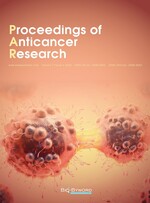Abstract
Sunlight has an indispensable importance for living things in nature [1-3]. However, the direct absorption of UV will lead to the formation of pyrimidine dimers between adjacent pyrimidines in DNA strands usually in the form of cyclobutene pyrimidine dimers (CPDs) and pyrimidine (6-4) pyrimidone photoproducts (6-4PPs) which causes great damage [4-6]. A DNA repair system, known as photoreactivation, can effectively repair the dimers using photolyase [7-9], which has currently been found in plants, prokaryotic and eukaryotic cells [10-12]. This study was carried out to determine whether photolyase DNA repair can be observed in yeast. Several yeast Petri dishes were treated with ultraviolet radiation, different treatments were then added to them, and the colonies were counted after culturing, hence verifying that yeasts can use the photoreactivation process.
References
Banas AK, Zglobicki P, Kowalska E, et al, 2020, All You Need is Light. Photorepair of UV-Induced Pyrimidine Dimers. Genes, 11(11): 1–17. https://doi.org/10.3390/genes11111304
Wright KP Jr, McHill AW, Birks BR, et al, 2013, Entrainment of the Human Circadian Clock to the Natural Light-Dark Cycle. Curr Biol, 23(16): 1554–1558. https://doi.org/10.1016/j.cub.2013.06.039
Holick MF, Chen TC, Lu Z, et al, 2007, Vitamin D and Skin Physiology: A D-Lightful Story. J Bone Miner Res, 22 Suppl 2: V28–V33. https://doi.org/10.1359/jbmr.07s211
Schuch AP, Moreno NC, Schuch NJ, et al, 2017, Sunlight Damage to Cellular DNA: Focus on Oxidatively Generated Lesions. Free Radic Biol Med, 107: 110–124. https://doi.org/10.1016/j.freeradbiomed.2017.01.029.
Eischeid AC, Linden KG, 2007, Efficiency of Pyrimidine Dimer Formation in Escherichia coli Across UV Wavelengths. J Appl Microbiol, 103(5): 1650–1656. https://doi.org/10.1111/j.1365-2672.2007.03424.x
Douki T, von Koschembahr A, Cadet J, 2017, Insight in DNA Repair of UV-Induced Pyrimidine Dimers by Chromatographic Methods. Photochem Photobiol, 93(1): 207–215. https://doi.org/10.1111/php.12685
Fingerhut BP, Heil K, Kaya E, et al, 2012, Mechanism of UV-Induced Dewar Lesion Repair Catalysed by DNA (6-4) Photolyase. Chemical Science, 3(6): 1794–1797. https://doi.org/10.1039/c2sc20122d
Ramírez-Gamboa D, Díaz-Zamorano AL, Meléndez-Sánchez ER, et al, 2022, Photolyase Production and Current Applications: A Review. Molecules, 27(18): 5998. https://doi.org/10.3390/molecules27185998
Fukui A, Hieda K, Matsudaira Y, 1978, Light-Flash Analysis of the Photoenzymic Repair Process in Yeast Cells. I. Determination of the Number of Photoreactivating Enzyme Molecules. Mutat Res, 51(3): 435–439. https://doi.org/10.1016/0027-5107(78)90133-1
Painter RB, 1974, DNA Damage and Repair in Eukaryotic Cells. Genetics, 78(1): 139–148. https://doi.org/10.1093/genetics/78.1.139
Heelis PF, Kim ST, Okamura T, et al, 1993, The Photo Repair of Pyrimidine Dimers by DNA Photolyase and Model Systems. J Photochem Photobiol B, 17(3): 219–228. https://doi.org/10.1016/1011-1344(93)80019-6
Tuteja N, Ahmad P, Panda BB, et al, 2009, Genotoxic Stress in Plants: Shedding Light on DNA Damage, Repair and DNA Repair Helicases. Mutat Res, 681(2–3): 134–149. https://doi.org/10.1016/j.mrrev.2008.06.004
Belda I, Ruiz J, Santos A, et al, 2019, Saccharomyces cerevisiae. Trends Genet, 35(12): 956–957. https://doi.org/10.1016/j.tig.2019.08.009
Duina AA, Miller ME, Keeney JB, 2014, Budding Yeast for Budding Geneticists: A Primer on the Saccharomyces cerevisiae Model System. Genetics, 197(1): 33–48. https://doi.org/10.1534/genetics.114.163188
Nielsen J, 2019, Yeast Systems Biology: Model Organism and Cell Factory. Biotechnol J, 14(9): e1800421. https://doi.org/10.1002/biot.201800421
Kouamé C, Loiseau G, Grabulos J, et al, 2021, Development of a Model for the Alcoholic Fermentation of Cocoa Beans by a Saccharomyces cerevisiae Strain. Int J Food Microbiol, 337: 108917. https://doi.org/10.1016/j.ijfoodmicro.2020.108917
Suter B, Livingstone-Zatchej M, Thoma F, 1997, Chromatin Structure Modulates DNA Repair by Photolyase in vivo. EMBO J, 16(8): 2150–2160. https://doi.org/10.1093/emboj/16.8.2150
Morse NR, Meniel V, Waters R, 2002, Photoreactivation of UV-Induced Cyclobutane Pyrimidine Dimers in the MFA2 Gene of Saccharomyces cerevisiae. Nucleic Acids Res, 30(8): 1799–1807. https://doi.org/10.1093/nar/30.8.1799
Sinha RP, Häder DP, 2002, UV-Induced DNA Damage and Repair: A Review. Photochem Photobiol Sci, 1(4): 225–236. https://doi.org/10.1039/b201230h
Engel SR, Dietrich FS, Fisk DG, et al, 2014, The Reference Genome Sequence of Saccharomyces cerevisiae: Then and Now. G3 (Bethesda), 4(3): 389–398. https://doi.org/10.1534/g3.113.008995
